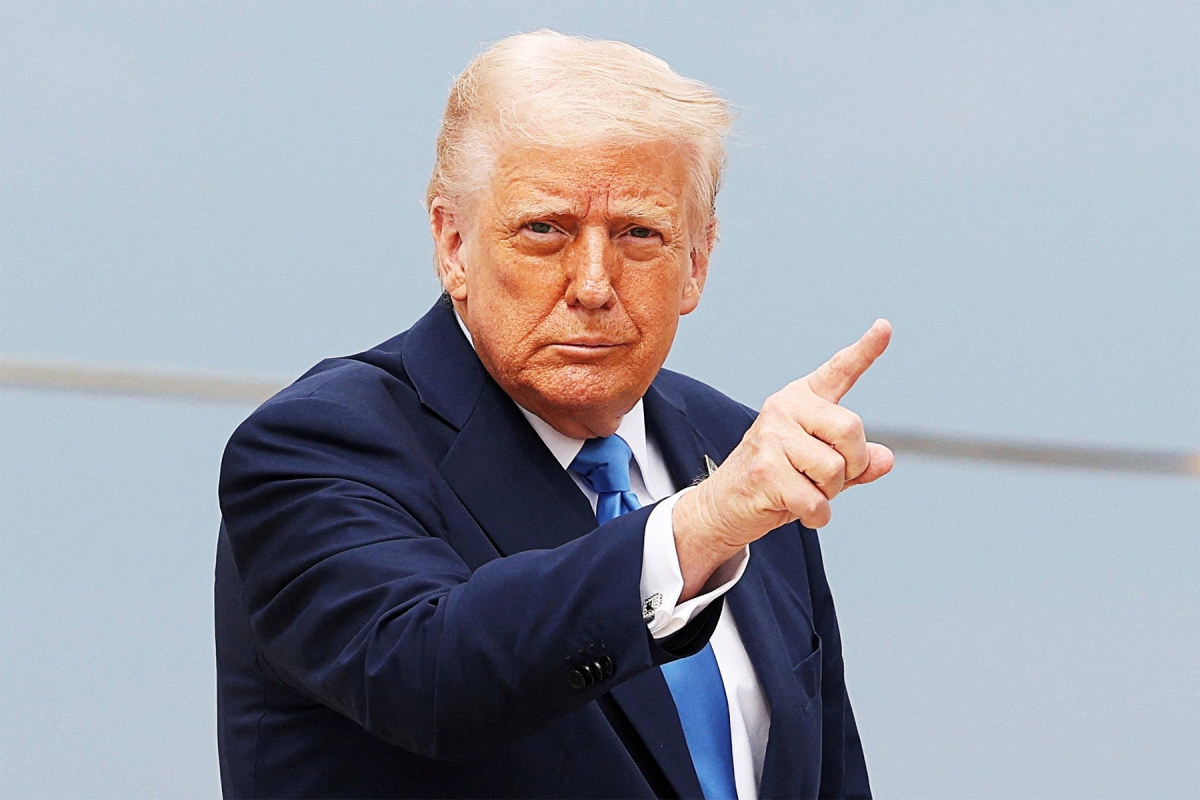The geopolitical relationship between the United States and Russia has long been marked by shifting dynamics, historical tension, and moments of diplomatic cooperation. Former President Donald Trump’s recent remarks regarding an alleged threat made to Russian President Vladimir Putin have renewed attention on this complex relationship—particularly in the context of Russia’s ongoing war in Ukraine.
In July 2024, U.S. news outlet CNN published a report detailing comments made by Trump during a private donor event. According to audio recordings reviewed by CNN and discussed in the book The Truce: 2024 and the Future of America, written by journalists Josh Dawsey, Tyler Pager, and Isaac Arnsdorf, Trump claimed that he once warned Vladimir Putin he would bomb Moscow if Russia invaded Ukraine. The context of these statements has raised questions and sparked both domestic and international reactions.

Trump’s Alleged Remarks at 2024 Campaign Event
The audio reportedly originates from a 2024 fundraising event in which Donald Trump discussed his foreign policy strategies. During the event, he allegedly stated that he warned President Putin of a severe response should Russia proceed with its aggression toward Ukraine. Trump’s purported comment was, “If you go into Ukraine, I’m going to bomb Moscow.”
CNN has not disclosed the full content of the audio but verified its existence and connection to the private campaign event. As of mid-2025, neither Trump nor his official campaign has issued a public statement confirming or denying the authenticity of the tape. The alleged remarks were also referenced in media coverage by The Washington Post and Newsweek.
The statement appears to contrast with Trump’s previous public approach to President Putin. During his presidency from 2017 to 2021, Trump often emphasized maintaining open lines of communication with the Russian leader. Nevertheless, the relationship between Washington and Moscow remained complicated, shaped by issues such as cybersecurity, nuclear arms treaties, and Russian interference in the 2016 U.S. election, as outlined in U.S. intelligence community reports and congressional hearings.

Kremlin Responds to Media Reports
Following the publication of CNN’s report, the Kremlin addressed the claim through its official spokesperson. Dmitry Peskov, press secretary to President Putin, responded to the media coverage on July 10, 2024. Citing the Russian state news agency TASS, Newsweek reported that Peskov did not explicitly confirm or deny the content of the alleged conversation.
Peskov stated that there had been no official communication between President Putin and Donald Trump at the time referenced in the reports—after Trump’s presidency had ended. “There were no telephone conversations then,” Peskov said, indicating that no direct dialogue took place when Trump was no longer serving as President of the United States.
He further commented on the growing prevalence of misinformation in public discourse, cautioning that many news items today include unverified or misleading details. “Often, there are many more fakes than true information,” Peskov noted, though he did not comment directly on whether the specific audio was genuine.
The Kremlin’s response, while measured, reflects Russia’s broader approach to Western media coverage—particularly in matters involving security and foreign policy.

Background: U.S.-Russia Relations Under Trump
During Donald Trump’s presidency, his foreign policy stance toward Russia received mixed reviews. While Trump frequently stated that he believed it was beneficial for the U.S. to maintain constructive relations with Russia, his administration also enacted a number of sanctions on Russian entities, including those related to alleged election interference and the annexation of Crimea.
One of the more notable meetings between the two leaders occurred in Helsinki, Finland, in 2018, where Trump and Putin held a joint press conference. Trump’s remarks at the event drew criticism from U.S. intelligence officials and lawmakers, as he appeared to cast doubt on U.S. intelligence findings in favor of Putin’s assurances.
Since leaving office in January 2021, Trump has remained outspoken on foreign policy issues, including the conflict in Ukraine. In early 2023 and again during campaign appearances in 2024, Trump stated that if elected again, he could negotiate an end to the war in Ukraine within 24 hours. No specific policy plan or diplomatic strategy supporting this claim was released, and his remarks were widely scrutinized by international relations experts.

Russia’s Ongoing War in Ukraine
The war in Ukraine, initiated by Russia’s full-scale invasion in February 2022, continues into its third year. The United Nations, NATO allies, and European Union countries have strongly condemned the invasion, implementing waves of economic sanctions and providing humanitarian and military assistance to Ukraine. As of mid-2025, the conflict remains unresolved, with ongoing hostilities concentrated in Eastern Ukraine.
The Biden administration has maintained a strong stance in support of Ukraine, providing billions of dollars in military aid and reinforcing NATO’s eastern flank. U.S. officials have described the war as a defining moment for global democracy and sovereignty.
While former President Trump has criticized the financial and military support extended to Ukraine, he has also stated publicly that he supports peace and stability in the region. His statements, however, have sparked debate, particularly in relation to his past and current positioning toward President Putin.

International and Domestic Reactions
Political analysts and commentators continue to evaluate Trump’s reported comments through various lenses. Some view the remarks as an example of rhetorical strategy used in private donor events, while others consider the implications of such statements on diplomatic protocol and national security.
From an international law perspective, threats of military action against a sovereign capital—if confirmed—would carry significant diplomatic consequences. However, without formal confirmation of the audio’s authenticity and no verified timeline of the alleged conversation with Putin, official reactions remain limited.
Domestically, the comments have added another layer to ongoing discussions around Trump’s foreign policy approach. They also intersect with broader debates about transparency, accountability, and the role of former presidents in shaping public discourse on global affairs.
Conclusion
Donald Trump’s alleged remarks about threatening military action against Moscow have reignited conversation around U.S.-Russia relations and the ongoing war in Ukraine. While CNN’s reporting and excerpts from The Truce: 2024 and the Future of America bring attention to what may have been said in private campaign settings, there has been no official confirmation from either Trump’s team or Russian authorities regarding the specifics of the alleged exchange.
The Kremlin’s response has been measured, emphasizing the absence of direct communication and cautioning against misinformation. As global security challenges continue, accurate and verified information remains essential in assessing the evolving dynamics between the United States and Russia.
Sources:
-
CNN Politics – “Trump Claims He Threatened to Bomb Moscow”
-
Newsweek – “Russia Responds to Trump’s Claim He Threatened Moscow”
-
U.S. Department of State – U.S.-Russia Bilateral Relations
-
United Nations – Updates on Ukraine Conflict
-
TASS – Official Kremlin Statements
-
The Washington Post – Trump’s Foreign Policy Legacy
-
Congressional Research Service – Russia-Ukraine Conflict: Background and U.S. Policy
